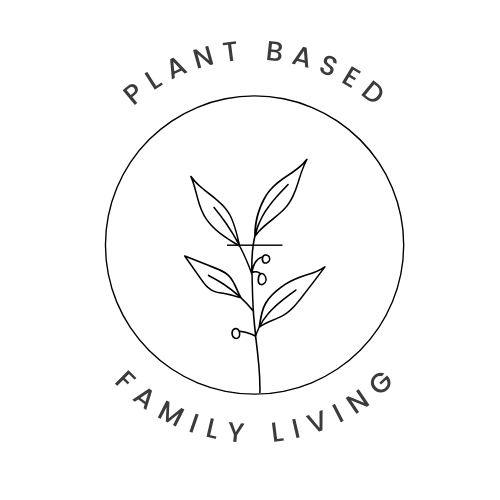A Guide to a Healthy and Nourishing Diet
Eating a healthy and balanced diet is crucial during pregnancy and breastfeeding, as the nutrients you consume directly impact the health and development of your baby. Plant-based nutrition has been shown to offer numerous benefits for both mothers and babies, including reducing the risk of complications during pregnancy, promoting healthy fetal growth and development, and supporting postpartum recovery. In this article, we will explore the benefits of plant-based nutrition for pregnancy and breastfeeding, as well as provide a guide on how to achieve a healthy and nourishing plant-based diet.
Benefits of Plant-Based Nutrition for Pregnancy and Breastfeeding
- Reduced Risk of Complications: A plant-based diet has been shown to reduce the risk of complications during pregnancy, such as pre-eclampsia, gestational diabetes, and preterm birth. This is due to the high levels of fiber, antioxidants, and other nutrients found in plant-based foods.
- Healthy Fetal Growth and Development: Plant-based foods are rich in vitamins and minerals, such as folate, iron, and calcium, which are essential for healthy fetal growth and development. Folate, in particular, has been shown to reduce the risk of birth defects.
- Improved Postpartum Recovery: A plant-based diet can also support postpartum recovery by providing the nutrients necessary for healing and lactation. Plant-based foods are rich in iron, calcium, and protein, all of which are essential for postpartum recovery and breastfeeding.
Tips for Achieving a Healthy and Nourishing Plant-Based Diet during Pregnancy and Breastfeeding
- Focus on Whole Foods: The key to a healthy plant-based diet is to focus on whole, unprocessed foods. This includes a variety of fruits, vegetables, whole grains, legumes, nuts, and seeds. These foods are rich in fiber, vitamins, and minerals that are essential for a healthy pregnancy and breastfeeding.
- Ensure Adequate Nutrient Intake: It’s important to ensure that you’re getting adequate amounts of key nutrients during pregnancy and breastfeeding. This includes folate, iron, calcium, protein, and omega-3 fatty acids. A plant-based prenatal vitamin or supplement can help ensure that you’re meeting your nutrient needs.
- Incorporate a Variety of Plant-Based Protein Sources: Protein is essential for fetal growth and development, as well as postpartum recovery and breastfeeding. Plant-based protein sources include beans, lentils, tofu, tempeh, nuts, and seeds. Incorporating a variety of these foods into your diet can ensure that you’re getting adequate protein.
- Stay Hydrated: Staying hydrated is essential during pregnancy and breastfeeding. Drinking plenty of water and other hydrating fluids, such as herbal teas and coconut water, can help support healthy pregnancy and breastfeeding.
- Listen to Your Body: Pregnancy and breastfeeding can be demanding on your body, so it’s important to listen to your body’s signals and adjust your diet as needed. This may include eating more frequently, increasing your calorie intake, or adjusting your nutrient intake.
There are numerous resources available to help you achieve a healthy and nourishing plant-based diet during pregnancy and breastfeeding. The Physicians Committee for Responsible Medicine (PCRM) offers helpful tips and guidelines on plant-based nutrition for pregnancy, and even provides a vegan pregnancy meal plan. The Vegan Society provides comprehensive information on vegan nutrition during pregnancy and breastfeeding. Vegan Health is another excellent resource for information on plant-based nutrition during pregnancy and breastfeeding. The Academy of Nutrition and Dietetics provides evidence-based guidelines for eating a healthy vegetarian or vegan diet during pregnancy and breastfeeding. The American Pregnancy Association provides useful information on the safety and benefits of a vegetarian or vegan diet during pregnancy. The World Health Organization has also published a helpful guide on the benefits of plant-based diets in pregnancy and lactation. La Leche League International is another helpful resource for vegan nutrition during breastfeeding. Check out the links below for more information on how to maintain a healthy plant-based diet during pregnancy and breastfeeding:
- PCRM: https://www.pcrm.org/good-nutrition/plant-based-diets/pregnancy
- The Vegan Society: https://www.vegansociety.com/resources/nutrition-and-health/life-stages/pregnancy-and-breastfeeding
- NCBI study: https://www.ncbi.nlm.nih.gov/pmc/articles/PMC6470702/
- Vegan Health: https://veganhealth.org/pregnancy-breastfeeding/
- Academy of Nutrition and Dietetics: https://www.eatright.org/health/pregnancy/prenatal-wellness/eating-vegetarian-and-vegan-during-pregnancy-and-breastfeeding
- American Pregnancy Association: https://americanpregnancy.org/healthy-pregnancy/is-a-vegetarian-diet-safe-during-pregnancy-1045/
- World Health Organization: https://www.who.int/nutrition/publications/micronutrients/guidelines/Plantbased-diet-in-pregnancy-and-lactation.pdf
- La Leche League International: https://www.llli.org/breastfeeding-info/vegan-nutrition/
- The Physicians Committee for Responsible Medicine: https://www.pcrm.org/good-nutrition/plant-based-diets/recipes/vegan-pregnancy-meal-plan
Plant-based nutrition offers numerous benefits for pregnancy and breastfeeding, including reducing the risk of complications
